From trauma survivor to child advocate: Austin Peay social work graduate builds paths to healing
By: Brian Dunn June 13, 2025

Photo: Aarionna Williams after her May 2025 graduation.
When Aarionna Williams sits across from children at her internship watching them play with toys, she sees more than their imaginations. She watches their stories unfold and finds something deeper within them.
“If they build a sword, they might have more aggressive behavior,” said Williams, a recent Austin Peay State University social work graduate. “If they build a wall, it shows they keep their guard up because somebody close to them has violated their trust. You can tell a lot about their feelings through play.”
This understanding emerged from Williams' childhood experiences and her journey to Austin Peay State University, where she found purpose and community.
From Trauma to Transformation
Williams' path to social work began with her experience navigating childhood trauma. Growing up in a family struggling with drug addiction, she witnessed how substance abuse can devastate families across generations.
At 10, Williams took steps to protect herself. When authorities failed to recognize the abuse, she recorded her mother's behavior as evidence for the Department of Children's Services.
"That is how the system failed me; I had to take it upon myself at the age of 10 to record her to get my evidence myself," Williams said. "A child shouldn't have to do that on their own."
By 12,with her uncle and aunt’s assistance, Williams moved under the guardianship of a military couple who provided structure and stability, helping her break generational substance abuse patterns.
"I didn't want to be like that," Williams said. "I literally saw what a downward spiral of narcotics and a life with no goals can do to you. The people around them were not there to uplift them and let them know there's a light at the end of the tunnel."
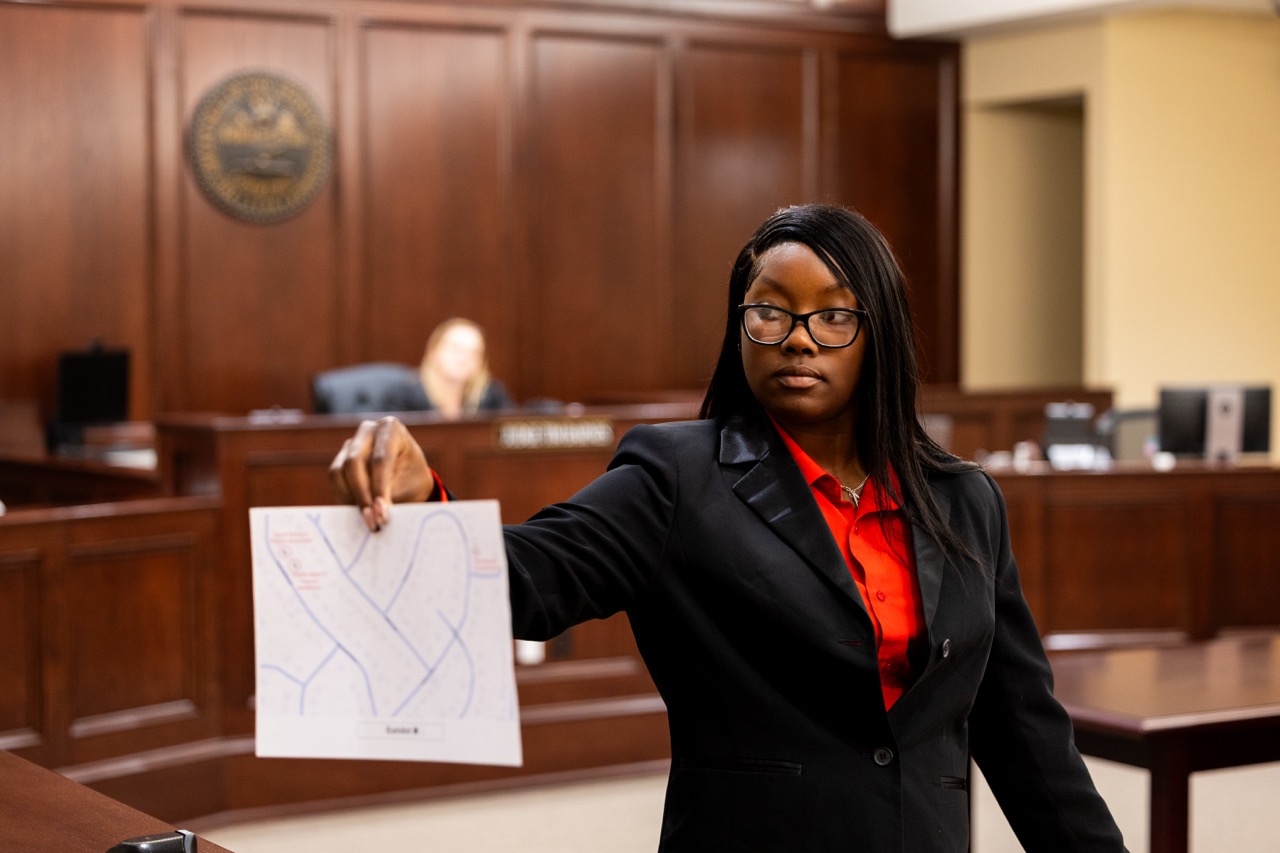
Photo: Aarionna Williams during a mock trial in 2024. (Sean McCully)
Finding Her Way to APSU
Williams initially attended The Ohio State University but found the environment overwhelming.
"Ohio State was a community within itself," she said. "It's so big. It was hard to keep friends. I kept one friend from there; she's like my best friend. But it was so hard because that's just how it is."
Williams struggled with the sudden freedom of college life after growing up in a structured household.
"All I did was party," she said. "I got sidetracked because, obviously, transitioning from high school to college, on top of that, I was in a strict household. I never got to do anything or go anywhere. Now I'm like, 'OK, I get to party. I can stay out past curfew.'"
High costs and academic challenges led Williams to transfer to Austin Peay. Still paying out-of-state tuition due to her military family's relocations, she approached APSU cautiously.
"I was very sad about not staying at Ohio State because my whole life I was like, 'I'm going to go to college,'" she said. "But looking back, I'm very glad because it gave me the opportunity to branch out and actually do what I wanted to do."
Initially, Williams isolated herself to focus on academics—a response she now recognizes as part of her trauma.
"I didn't want to be in that position again, so I isolated myself from everybody," she said. "Again, [I was] very miserable because at the end of the day, you have to find that balance."
Finding Community and Purpose at APSU
That balance emerged as Williams got involved on campus. In Spring 2024, she joined the Iota Upsilon chapter of Delta Sigma Theta Sorority Inc., seeking professional development and gaining "lifelong sisters."
"I've always wanted to join a sorority for professional reasons," Williams said. "I wanted to figure out how to support mental health via networking, collaborating with others in programs, or creating new programs to deal with these societal issues. However, I got more than just networking possibilities—I also acquired lifelong sisters."
Alongside her Greek life involvement, Williams served as a peer leader to help other students transition into college.
"This program helped me enhance my leadership abilities, build relationships with professors and faculty, connect with campus resources, and hone my interpersonal communication skills," she said.
Being a peer leader gave Williams a purpose beyond her education.
“That transition from high school to college is not always simple, and some people do not follow the mainstream path,” she said. “Many can be nontraditional and decide they want to go back to school to pursue their dreams. I wanted to establish a rapport with those students and provide them with the resources they needed to become part of the Austin Peay community.”
At APSU, Williams found a sense of belonging she'd never experienced before, particularly within the social work program.
“Because many students in the social work program want to make a difference and find a place in society for everyone, the professors and people you are surrounded by eventually become your family,” she said. “You don’t have a closer bond [at a school like Ohio State] the way that I have a close bond with the ones in this program.”

Photo: Aarionna Williams joins her sorority during the 2024 step show at Austin Peay.
Healing Through Helping Others
Williams started a 400-hour internship this year with children facing mental health challenges, including traumatized kids. She observed therapy sessions and implemented evidence-based practices, solidifying her passion for clinical social work.
"When I first went into therapy I was a little scared... but she made me feel so comfortable, and at that moment, I was pouring out everything," Williams said of her own experience starting therapy at age 16. "I wanted to be just like her."
Now, Williams sees parts of herself in the children she works with.
"I do see the inner child in me,” she said. “At the end of the day, the inner child only wants to help them and show them, 'Hey, you know, you're not alone.'"
For Williams, one of the most rewarding aspects of her internship is watching children transform during therapy sessions.
"They come in and they're happy to see their therapist,” she said. “Other times they come in and they don't care to see their therapist. They're just here. When they leave, they have the biggest smile on their face. 'I can't wait to see you next week.' It becomes their sanctuary, their safe haven."
Williams has developed the skills to identify children's trauma responses and meet their needs.
“I understand that when children feel abandoned, they often withdraw emotionally as a way to protect themselves,” she said. “When they form strong attachments, it's usually because they're afraid of losing someone again—they cling to those connections because so many people have come and gone in their lives.”
This insight extends to recognizing signs of undetected abuse.
“I can often sense a child's experiences through their mannerisms and body language,” she said. “When a child is slumped over, it may suggest they feel dominated or overwhelmed by an adult. If you're standing over them, they might appear fearful or uneasy, unsure whether they can trust you.”
Advocating for Change
Williams' personal experiences have fueled her determination to improve the child welfare system. She speaks passionately about how social workers and judges often miss signs of abuse because they are overwhelmed with cases.
"If the child has access to basic necessities like food, clothing, and a roof over their head, they're not in danger, and the judge won't even bother opening or reviewing the case," Williams said. "For these reasons, I want to find better ways to alleviate the problem of child maltreatment."
She emphasized how trauma alters a child's worldview and can cause them to live in a constant fight or flight state.
"Children who have experienced trauma frequently see the world through a prism of dread, distrust, and hypersensitivity,” she said. “I say this because that was exactly how I viewed the world. I know I cannot fully stop the problem, but something has to change within our legal systems.”
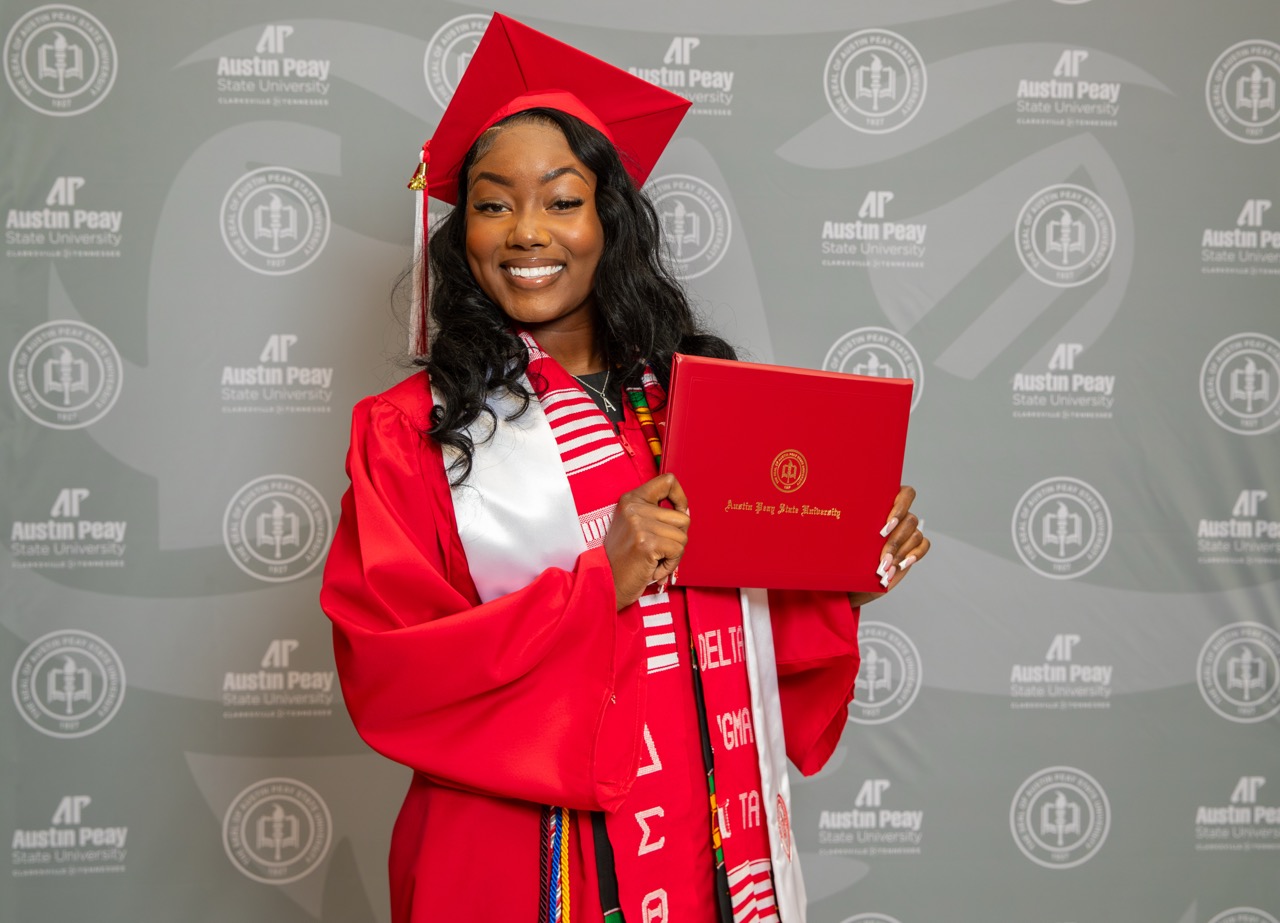
Photo: Aarionna Williams immediately after her graduation. (Robyn White)
Looking Ahead
Williams plans to pursue a master’s in social work after graduating in May 2025. Her five-year plan includes becoming a Licensed Clinical Social Worker (LCSW), and her 10-year vision is to open her own practice and obtain a doctorate in social work.
"I want to be a clinical therapist who possesses the BSW, the MSW, and my LCSW," she said. "I want my own practice where I run it based on my morals, but on top of that, I want to make a change."
Williams aims to create a better environment for children who have experienced trauma, and dreams of writing a book about overcoming trauma to inspire others.
"I want to be able to create a better space for children to express themselves, to express their trauma," she said. “I want people to know that you don’t have to continue to hold onto your trauma ... [or] let it weigh you down. Trauma is not forever. It’s just temporary.”
For Williams, social work isn't just a career—it's a calling from her healing journey.
"I don't want to sit here and constantly say, 'Oh yeah, this person hurt me, so this is how I'm going to act,'" she said. "I want to fight for others and those kids that can't advocate for themselves, the ones who are sitting in the corner and wondering if there's someone out there that can help them. I want to be that person."
Through her journey from trauma to triumph, Aarionna Williams embodies the transformation that comes when personal pain becomes a professional purpose—turning a cycle of abuse into a lifetime of advocacy and healing.
"I would have been doing so many things I don't like doing," she said, reflecting on her path to social work, "But now I love going to class. I get excited. It's just so different."
At a Glance: Aarionna Williams
EDUCATION
- Social work major,, graduated May 2025
- Transferred from Ohio State University
- Started a 400-hour internship with Minds Matter this year
CAMPUS INVOLVEMENT
- Member of Delta Sigma Theta Sorority Inc., Iota Upsilon chapter
- Peer leader helping students transition to college
- Recognized for her impressive presence during a mock trial in the social work program
TRAUMA TO TRIUMPH
- At 12, placed under the guardianship of a military couple who provided stability
- Started therapy at 16 for childhood trauma
FUTURE PLANS
- Pursuing MSW after graduation
- Obtain LCSW (Licensed Clinical Social Worker) within five years
- Opening her own practice based on personal values
- Writing a book about overcoming trauma
PHILOSOPHY
"I understand these kids from a different perspective because I've been through it. Trauma doesn't last forever. You just have to make sure they understand there's a light at the end of the tunnel."
News Feed
View All News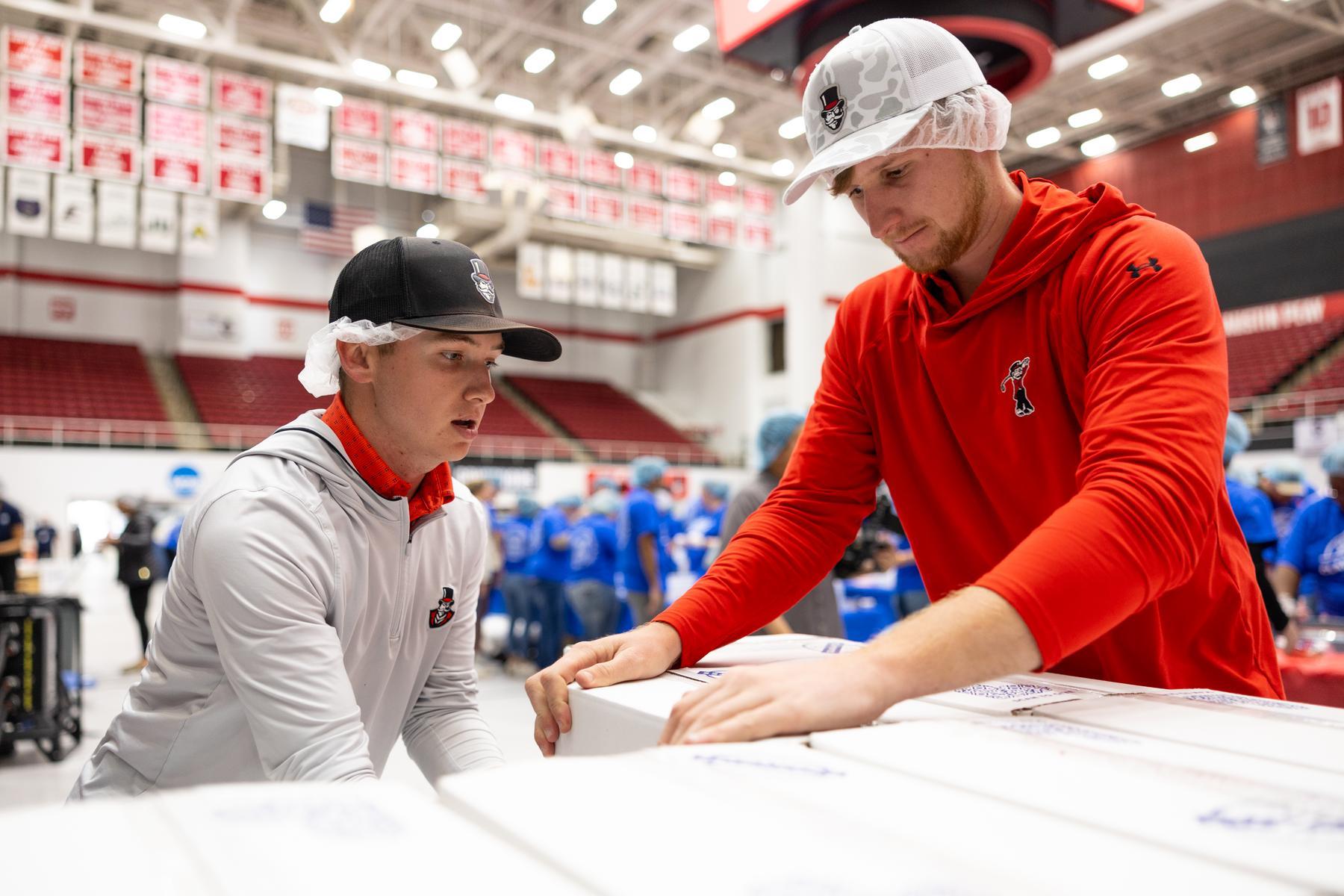
The event, a partnership with Convoy of Hope and U.S. Hunger, will see the meals distributed based on need to international communities facing hunger and food insecurity. Pastor Mike Burnette with LifePoint Church developed the project idea, while APSU Athletics provided the location and significant volunteer support.
Read More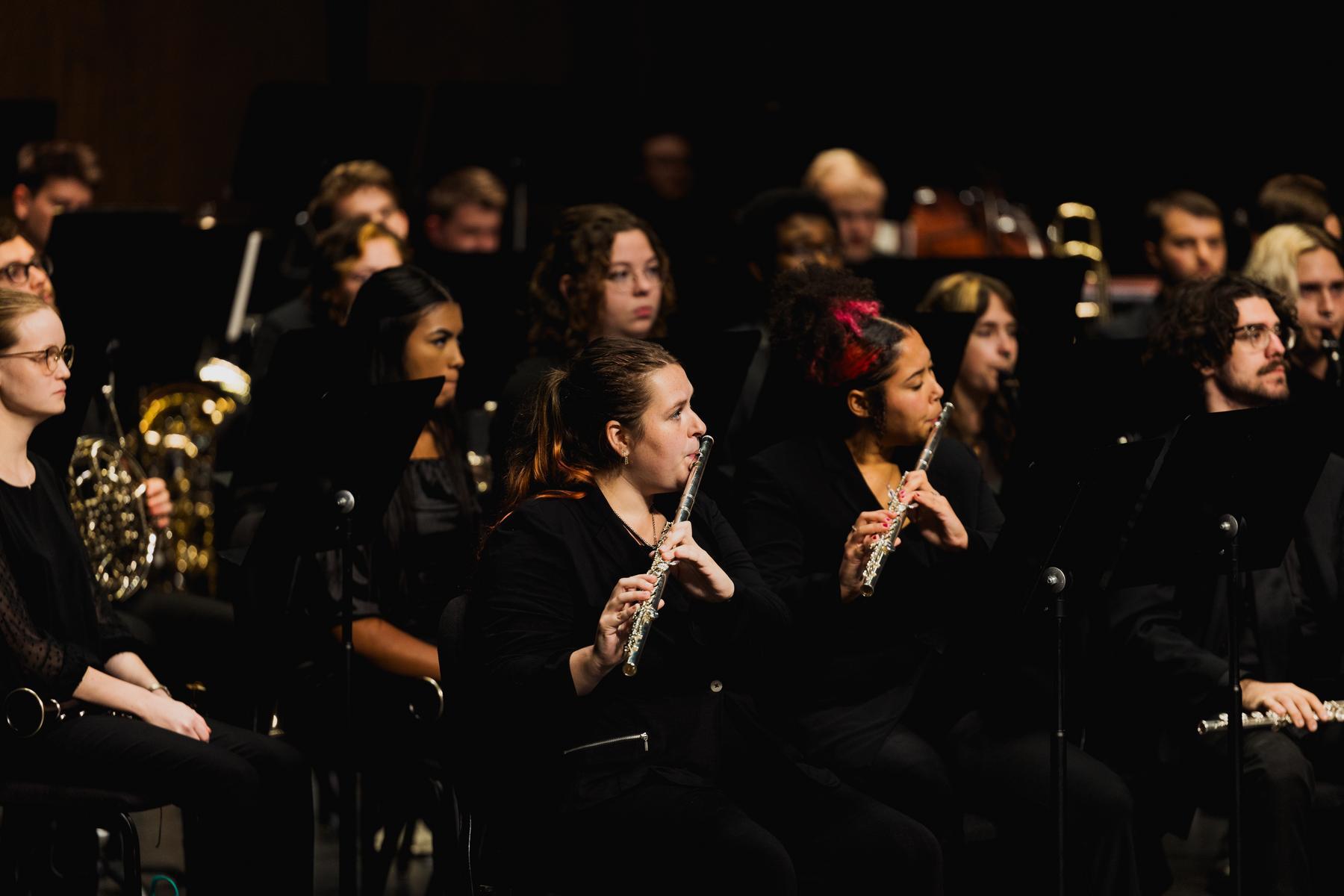
The Austin Peay State University Department of Music, with support from the Center of Excellence for the Creative Arts, has named Giancarlos Jose Carvajal Fonseca and Tyler Orendorff as the winners of the 2025-26 Concerto & Aria Competition, with an honorable mention awarded to Cal Luzzo.
Read More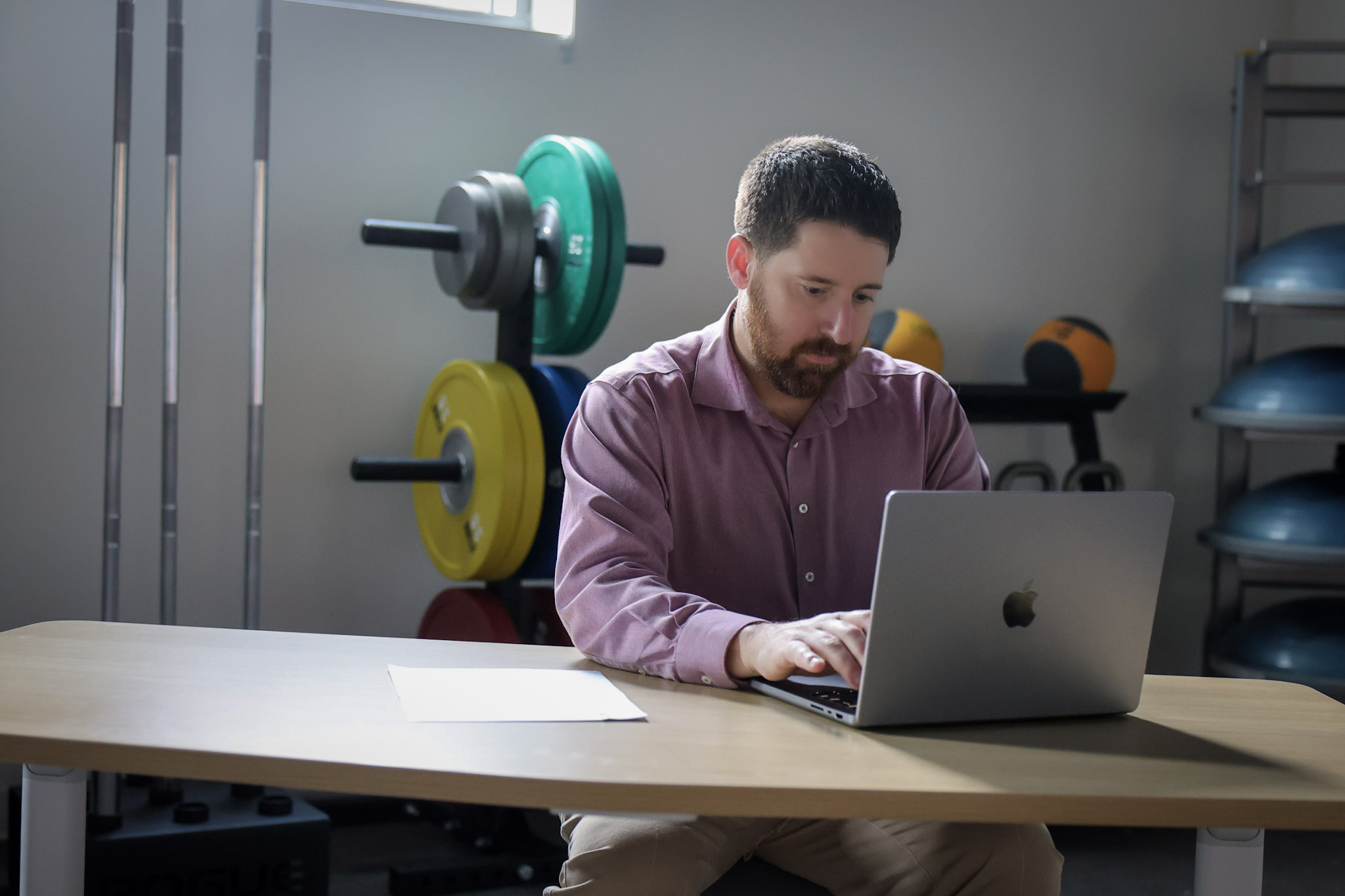
Dr. Alex Adams, an assistant professor in the Department of Health and Human Performance, has published one of the first comprehensive reviews of appropriate practices for K-12 online physical education--addressing a growing need as virtual enrollment remains above pre-pandemic levels nationwide.
Read More